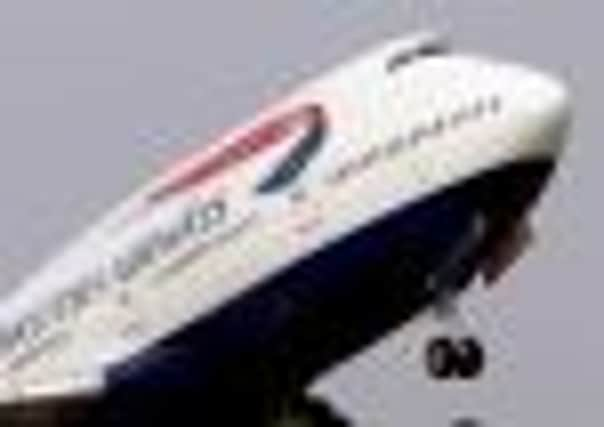Terry Murden: BA takeover of Bmi leaves an air of uncertainty


The European Commission waved the £172.5 million deal through on Friday but only on condition that IAG offloads additional landing slots. Seven of the 14 pairs are for routes between Heathrow and Edinburgh/Aberdeen. The EC wants these sold to other parties who will commit to maintaining them, amid suspicions that there are no firm guarantees.
The cabin doors are now open to Sir Richard Branson to fulfil promises he made to Scottish politicians. Should he take up the offer – and IAG chief executive Willie Walsh has challenged him to do so – it would mean Virgin Atlantic moving into unknown territory as it has never operated short-haul services and would have to prove it could make them pay.
Advertisement
Hide AdAdvertisement
Hide AdOf particular concern is whether Scotland retains its full complement of slots and whether this takeover has been allowed without a thorough inquiry. The SNP MEP Alyn Smith noted that the EC’s decision to force IAG to forfeit four more pairs of slots than the original ten agreed showed there were real concerns over a potential monopoly on the Heathrow-Scotland routes.
Scottish transport tycoon Sir Brian Souter yesterday expressed alarm that the Office of Fair Trading had chosen not to investigate what he described as the “most fundamental change to the UK domestic air market for many years”.
Virgin may offer some hope to Souter as it is considering an appeal, but it is more likely to pitch for the 14 pairs of routes that will be auctioned by the EC.
All of this will be important to the new owner of Edinburgh Airport who will inherit a facility with a changed relationship with a key connection. However, there could be a silver lining as at least one of the two remaining bidders for Edinburgh is understood to want more direct flights, bypassing Heathrow, and thereby giving Scottish travellers something they would welcome.
Co-op’s irritation
CO-OPERATIVE Group chief executive Peter Marks says he cannot be sure that it will complete the acquisition of 632 branches of Lloyds Banking Group and other assets in what is proving to be a hugely complex transaction.
There is a lot at stake. Marks is irritated by any suggestion that his organisation is somehow not up to the job of banking when it has been in the business for more than a hundred years. It’s also an ethical bank, with an enviable loan-to-deposit ratio, so that for every 94p lent, it takes in £1 in deposits, effectively ruling out the need for wholesale funding.
Among its weaknesses is an access to equity markets, although there are moves afoot for mutuals around Europe to create a new funding vehicle should they require access to capital.
It also faces the prospect of tighter regulation that may embrace its grocery chain, funeral parlours and pharmacies, thereby putting pressure on margins in businesses where it already faces tough competition.
Advertisement
Hide AdAdvertisement
Hide AdWithout the Lloyds business, the Co-op bank would struggle to grow and without the Co-op, Lloyds may have to press the higher risk flotation button, or reopen talks with NBNK whose rival offer was rejected. Both options would create a bank with only 4.6 per cent of current accounts, compared with the 6 per cent that Sir John Vickers’ commission declared was required to be competitive.